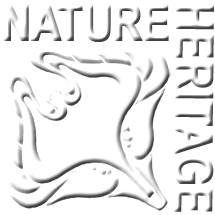Our inspiration
We always respect, consider and incorporate the local ecological environment and cultural heritage as fundamental pillars of our work. A profound connection between environment and local people exist in almost all cultures, albeit with diverse twists and interpretations. Stephan has looked into his cultural heritage, has embraced the principles that link Judaism with ecology, and has adopted these principles as guiding inspirations for Nature Heritage. The central topics of inspiration gained from Judaism are Shabbat, Kashrut and Tikum Olam.
Shabbat: a breather for the planet
Shabbat is the day of rest in the Jewish faith. A day to pause, so humans, animals and the land can recover from a busy week. Shabbat allows the body and spirit to revitalize in both communitarian and individual ways. On Shabbat it is not permitted to work – all must remain in peace and balance. A profound ecological awareness underlies this attitude, which goes back to the times when the Jewish people maintained closer ties to the land.
Kashrut and consumption
Kashrut is the body of Jewish dietary laws which define what can be eaten and how food must be prepared. Kashrut is a daily reminder to distinguish between proper and importer, right and wrong, sacred and profane. This custom also denotes an attitude of humility towards the environment, through the acceptance of the notion that not all living creatures should be at human disposal.
Kashrut particularly regulates the consumption of meat very stringent. It makes eating meat a rare and conscious activity; some scholars note that the ultimate goal of the Kashrut is vegetarianism. This restricted approach of utilizing life and resources is in sharp contrast to indiscriminate mass consumption of meat and dairy products, which has become one of the main drivers of environmental degradation and climate change. The negative impacts include excessive land use, energy use, and the release of methane gas, a major greenhouse gas. Moderating our meat consumption, as kashrut prescribes, will constitute a direct contribution to increase sustainability of the planet.
Tikum Olam: healing the world
Central to the Jewish codes of ethical conduct is to pursue justice in every aspect of our individual and communal lives. The concept of Tikum Olam refers to the shared responsibility of all humanity to heal and repair the world by social actions in the pursuit of social justice. The concept also merges social and environmental perspectives, whereby the healing of the world is nothing less than the salvation of our planet in the face of the environmental problems we humans have created.

